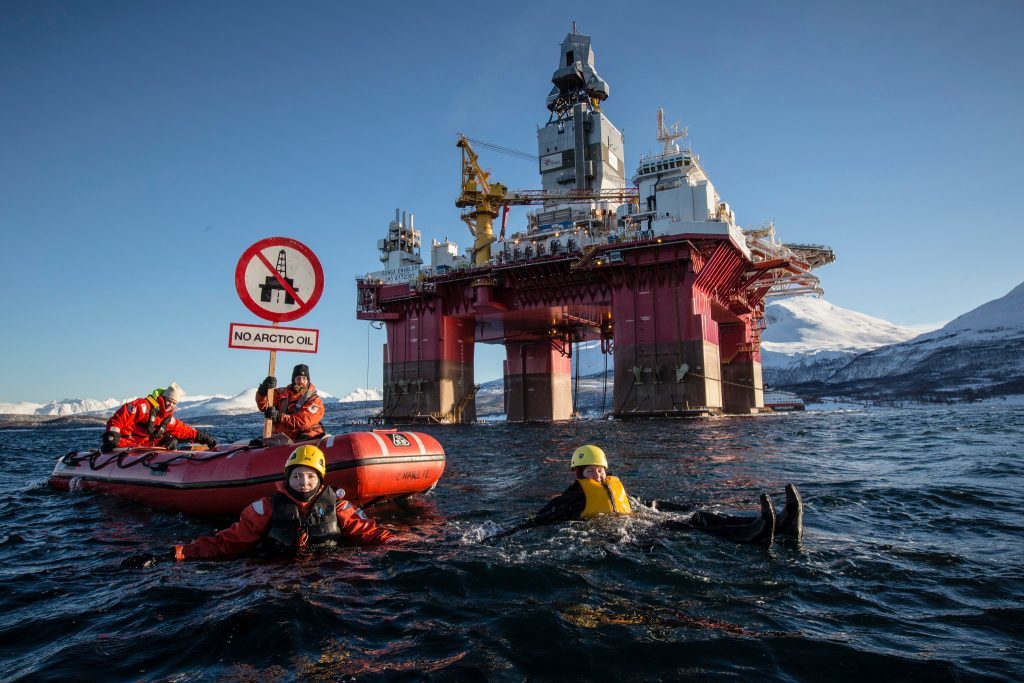
As oil and gas faces a rise in climate activism, ESG concerns, and the need to raise its own profile as a pillar of the energy transition, investors are weighing the impact.
EV talks to private equity player Kerogen Capital and investment platform Hargreaves Lansdown about whether activism is hurting the industry’s case for investment.
It’s been a “painful” few years for the tobacco industry. Cigarettes are expected to disappear from the US and elsewhere by 2050, taxes are on the rise, society is ever more aware of the health risks, and the industry is in need of transformative change to arm itself with new products like cigarette alternatives, according to a note from investment bank Citigroup last month.
Some in the oil and gas industry may balk at the comparison, but, from an investment standpoint, there are some parallels to be drawn as it weighs the impact of climate activism and environmental, social and corporate governance (ESG) considerations on its own value.
Hargreaves Lansdown, the UK’s largest investment platform, said the world saw valuations of oil majors like Shell, Exxon, Total and BP “start to slide” in 2016 – largely put down to lower oil prices.
However, a reluctance around investment due to climate concerns may also play a role.
Equity analyst Nick Hyett said: “If ESG considerations are putting investors off investing, then the valuation slide could continue for some years.
“We’ve seen something similar in tobacco stocks in recent years, and the result has been painful for investors.”
North Sea oil is, one way or the other, also expected to tail-off by around 2050, according to a 2019 study by Aberdeen University, so the survival of the industry will ultimately depend on its ability to adapt to the energy transition.
Industry players, such as Aker Solutions and Chrysaor, have repeatedly highlighted that oil and gas expertise is needed for vital carbon mitigation technologies such as CCS and hydrogen.
The sector has also underscored its role in energy security, reducing the UK’s reliance on imported fuel (which, by definition, has higher emissions) and its role in creating products for everyday life.
Despite various net-zero goals being announced recently, the sector has been hit with high-profile, headline-catching protests from activist groups, even in the North Sea on numerous occasions.
Hyett said: “It’s possible that investors’ increasing reluctance to invest in hydrocarbons is playing a part.
“If fewer investors are willing to buy the shares then valuations will fall, which obviously hurts existing holders but also makes it more expensive for oil majors to raise new funds should they choose to do so.
“Increasing the cost of capital for non-environmentally friendly businesses is one of the goals of many climate activists. It may be having the desired effect – although at this stage it is possibly too early to say.”
Aside from the carbon mitigation steps being taken by the industry, Hyett said that dividend payments, “especially at the larger names”, may be enough for some income-seeking investors, who “may feel those are sufficient compensation, especially as yields in the sector are already high.”
KEROGEN CAPITAL
One big investor in the oil and gas industry is private-equity player Kerogen Capital.
With $2billion of assets under management, oil and gas is a specialism of the “broadly-defined energy fund”, which recently put decarbonisation front-and-centre of its net zero strategy published in January, including a 50% reduction in the carbon intensity of its portfolio by 2030.
Speaking to Energy Voice from Hong Kong, chief executive and managing partner Jason Cheng said “the oil and gas industry is not disappearing, it will be around for a while, but it does need to change”.
He added: “If the world is going to continue in this transitional period to consume oil and gas, it is best to do that in a responsible low-carbon manner.
“So for us it’s about affecting that change and accelerating that change, as opposed to not being involved or not participating in the debate.”
Kerogen has a “carbon-light investment strategy”, which includes criteria such as gas weighting, power from renewables, greenhouse gas monitoring and reduction and repurposing of assets for the long-term such as for CCS and green hydrogen.
As seen last month with Ineos acquiring Hess assets in Denmark with a view to repurposing them for CCS, reuse of infrastructure could be a win-win for the sector, mitigating costly decommissioning bills.
Cheng said: “There is a social benefit in meeting decarbonisation, but there is actually a very strong economic benefit. If you can repurpose that infrastructure, you are reducing your decommissioning costs and creating new revenue streams from existing assets.
“There’s a social aspect but you’re also getting extra economics from the same asset, therefore it becomes doubly attractive for us.”
Kerogen sees CCS and hydrogen as “key pillars” of the energy transition, showing the role oil and gas has to play.
So for its portfolio firms “it’s a question of revisiting one’s business model and re-evaluating the place for an organisation within the context of a net zero carbon world”, Cheng said.
He was speaking shortly after Kerogen made announcements on its exits from Zennor Petroleum and Energean, as their investment cycles closed.
He acknowledged Kerogen had been a “beneficiary” of the recent oil price rally in those deals, with plenty of M&A activity recently in the North Sea and beyond.
“We are seeing increased corporate activity. Economies are looking better. It feels like we’re starting to move beyond the Covid paradigm.
“As economies start to recover and commodity prices have also recovered, that’s obviously created more optimism and we’re seeing the result of that with increased corporate activity and I suppose we’ve been beneficiaries of that.”
Cheng would not be drawn on the future of Kerogen’s 16% holding in Hurricane Energy, the beleaguered west of Shetland operator.
However, he said: “We’re committed to the UK, we have an office there, a lot of our investments are there.
“It has traditionally been a core part of our business and I think it will continue to be”.
Oil and gas, as he said, isn’t going anywhere, and Kerogen is keeping an eye out for opportunities within its own portfolio – and potentially new deals – for green hydrogen, CCS, and offshore wind.
Kerogen is an investor in BW Ideol, a floating wind venture with BW Offshore, which listed on the Oslo Stock Exchange last month.
Meanwhile the ramp up in ambitions for offshore wind in the UK, aiming to quadruple capacity by 2030, could spell good things for the North Sea, the energy transition and the overall investment case.
He said: “We’re very excited by offshore wind and the opportunity it presents. It is a very high-growth area. The potential, particularly in the UK which has very large offshore wind resources, is huge.
“I think over the longer term floating wind, particularly in the UK, has a role to play in green hydrogen, and using some of the infrastructure there, offshore as well.
“It’s going to be a huge part in the UK’s role in contributing to a net zero world because it’s got those huge offshore wind resources. I think you’re going to get a lot of investment, a lot of activity up there.”
Recommended for you



 © Kerogen Capital
© Kerogen Capital